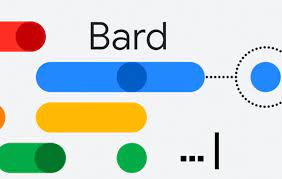In recent years, Google has been at the forefront of developing advanced AI language models. One of their latest innovations is Bard, a language model that has recently undergone significant updates to enhance its logic and reasoning capabilities. These updates aim to improve Bard’s ability to tackle complex mathematical tasks, answer coding questions, and handle string manipulation prompts. Additionally, Bard now includes an export function to Google Sheets, providing users with improved data management capabilities.
The Evolution of Bard’s Reasoning Abilities
The recent updates to Bard’s reasoning abilities represent a significant leap forward in the field of AI language models. Inspired by the dichotomy of human intelligence, known as “System 1” and “System 2” thinking, the developers of Bard have successfully incorporated both intuitive and logical reasoning into the model’s capabilities.
System 1 thinking is fast, intuitive, and effortless, while System 2 thinking is slower, deliberate, and requires more effort. By combining the capabilities of both Systems 1 and 2, Bard can now generate more accurate responses to complex tasks. This approach is similar to a jazz musician improvising on the spot while also being capable of carrying out intricate calculations or learning to play a musical instrument.
Implicit Code Execution: Unlocking Bard’s Full Potential
To enhance Bard’s reasoning capabilities, the developers introduced a groundbreaking feature called “implicit code execution.” This feature allows Bard to detect computational prompts and run code in the background, enabling it to respond more accurately to mathematical tasks, coding questions, and string manipulation prompts.
By incorporating implicit code execution, Bard can now generate text with deep thought, going beyond its previous limitations of operating purely under System 1 thinking. This advancement is a crucial step toward making Bard even more helpful and accurate in its responses.
The Potential and Limitations of Bard’s Updates
While the updates to Bard’s reasoning abilities are promising, it’s important to acknowledge that there are still limitations and challenges to overcome. Bard may not always generate the correct code or include executed code in its responses, and there may be scenarios where code generation is not applicable at all. The effectiveness of implicit code execution may also vary depending on the complexity of the task at hand.
Despite these limitations, Bard’s improved reasoning capabilities bring us closer to harnessing the full potential of AI language models. As with any tool, it’s essential to approach Bard with a balanced perspective, understanding its capabilities and limitations.
The Implications for SEO and Content Creation
The advancements in Bard’s reasoning abilities have significant implications for various industries, including SEO and content creation. With Bard’s enhanced logic and reasoning capabilities, SEO professionals can expect more accurate and helpful AI assistance in tasks such as keyword research, content optimization, and technical SEO analysis.
Content creators can also benefit from Bard’s improved reasoning abilities. By leveraging Bard’s capabilities, they can generate more engaging and informative content by receiving accurate answers to complex queries, improving the overall quality and relevance of their work.
Looking Ahead: The Future of AI Language Models
Google’s ongoing efforts to improve Bard’s reasoning abilities are just the beginning of what’s to come in the field of AI language models. As technology continues to evolve, we can anticipate even more sophisticated models that combine the best of human-like intuition and logical reasoning.
The future of AI language models holds tremendous potential for various industries, revolutionizing the way we approach tasks that require human-like understanding and decision-making. As these models continue to advance, businesses and individuals can leverage them to streamline processes, gain valuable insights, and enhance productivity.
Conclusion
Google’s recent updates to Bard’s reasoning abilities mark a significant milestone in the development of AI language models. By combining intuitive and logical reasoning, Bard can now generate more accurate responses to complex tasks, improving its overall performance and usefulness.
While there are limitations to consider, the advancements in Bard’s reasoning capabilities have wide-ranging implications for industries such as SEO and content creation. As we look ahead, the future of AI language models holds great promise, offering exciting possibilities for businesses and individuals alike.
As technology continues to evolve, it’s crucial to stay updated and harness the power of AI language models like Bard to unlock new opportunities and drive innovation in various fields. With Google at the forefront of these advancements, we can expect a future where AI-powered tools and systems become even more integral to our daily lives.


No comments! Be the first commenter?